Inspur NF5468M5 CPU Performance
At STH, we have an extensive set of performance data from every major server CPU release. Running through our standard test suite generated over 1000 data points for each set of CPUs. We are cherry picking a few to give some sense of CPU scaling. These figures should give some sense of performance scaling across a range of CPUs.
Python Linux 4.4.2 Kernel Compile Benchmark
This is one of the most requested benchmarks for STH over the past few years. The task was simple, we have a standard configuration file, the Linux 4.4.2 kernel from kernel.org, and make the standard auto-generated configuration utilizing every thread in the system. We are expressing results as compiles per hour to make the results easier to read.
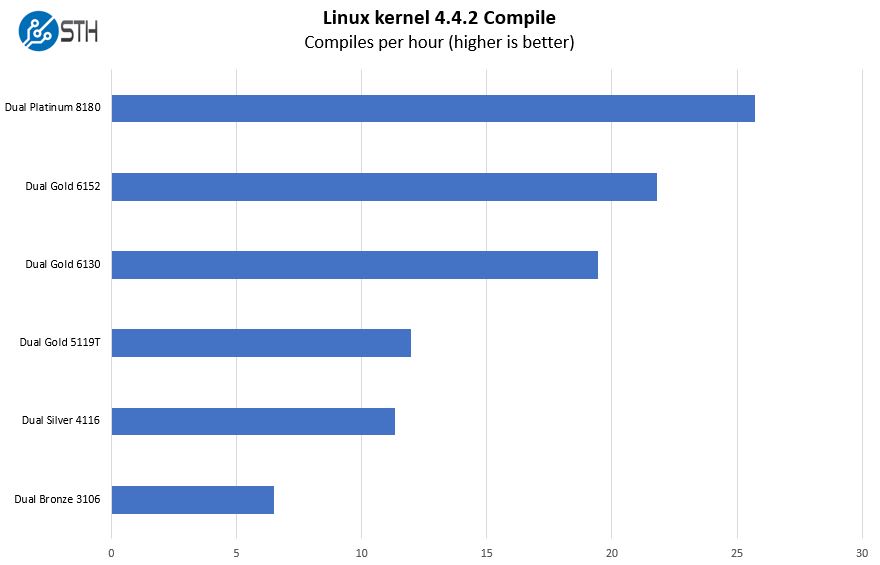
We wanted to show a range of results from the Intel Xeon Bronze to the Intel Xeon Gold range so that our readers can get some sense regarding the performance they get moving to higher-level SKUs.
c-ray 1.1 Performance
We have been using c-ray for our performance testing for years now. It is a ray tracing benchmark that is extremely popular to show differences in processors under multi-threaded workloads. We are going to use our new Linux-Bench2 8K render to show differences.
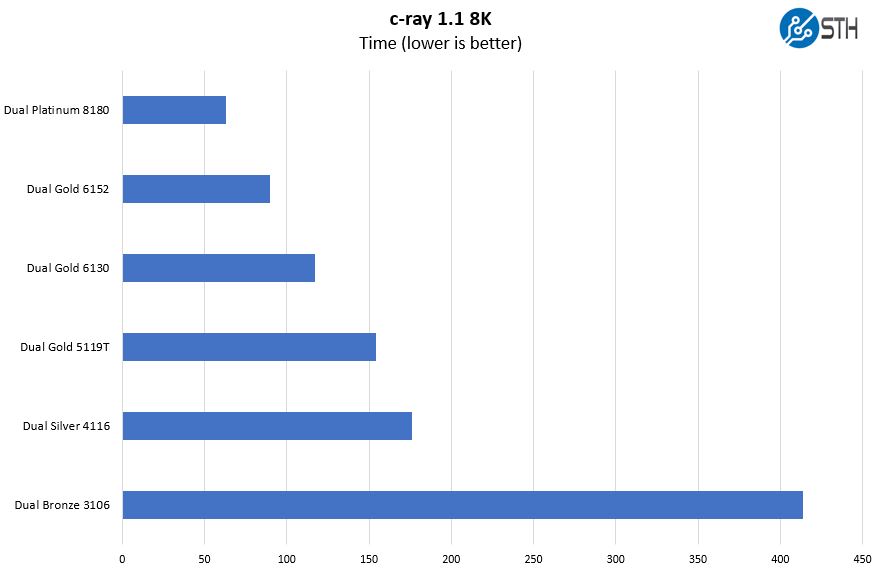
We see the Intel Xeon Gold series as where most customers will buy unless they have specific deals or needs in the Intel Xeon Platinum line.
7-zip Compression Performance
7-zip is a widely used compression/ decompression program that works cross-platform. We started using the program during our early days with Windows testing. It is now part of Linux-Bench.
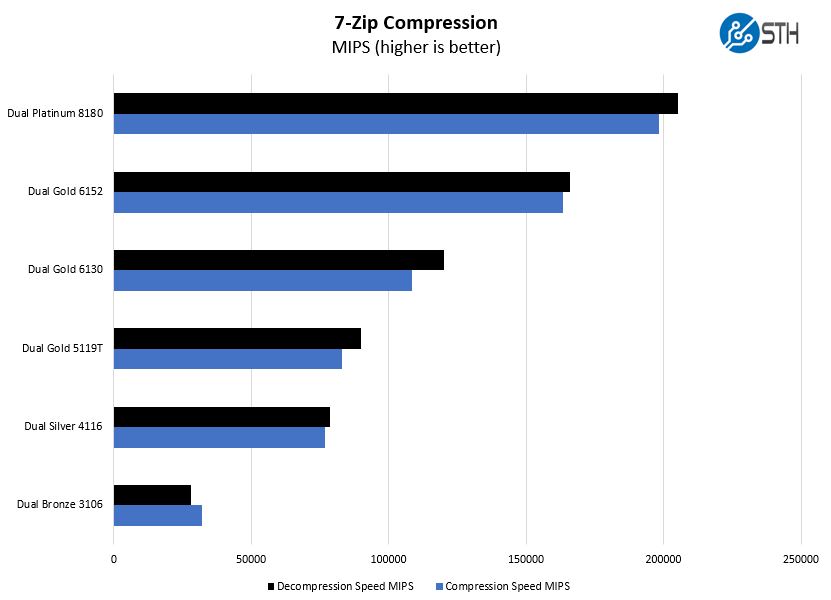
For compression workloads, again popular when moving data in AI and deep learning training servers, one can get 4-6x the performance of Intel Xeon Bronze by moving into the Intel Xeon Gold range. That is a massive speed increase.
OpenSSL Performance
OpenSSL is widely used to secure communications between servers. This is an important protocol in many server stacks. We first look at our sign tests:
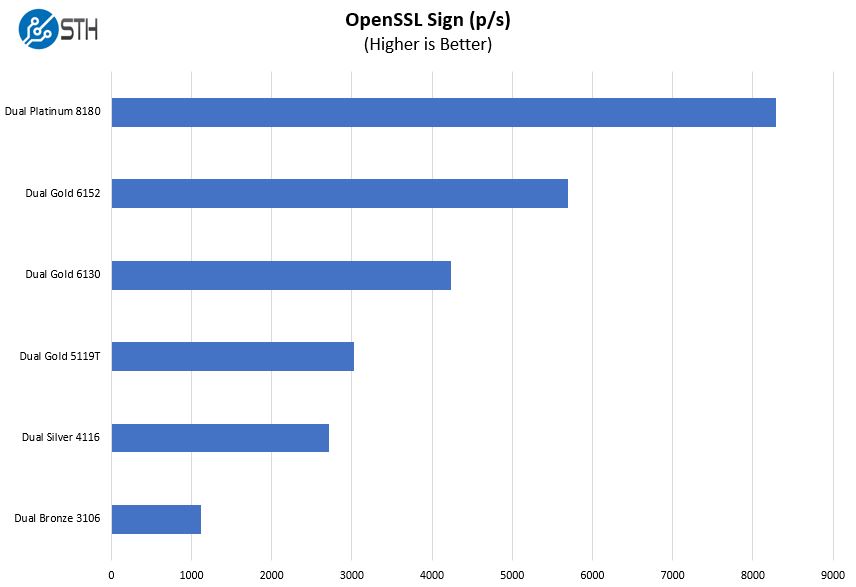
Here are the verify results:
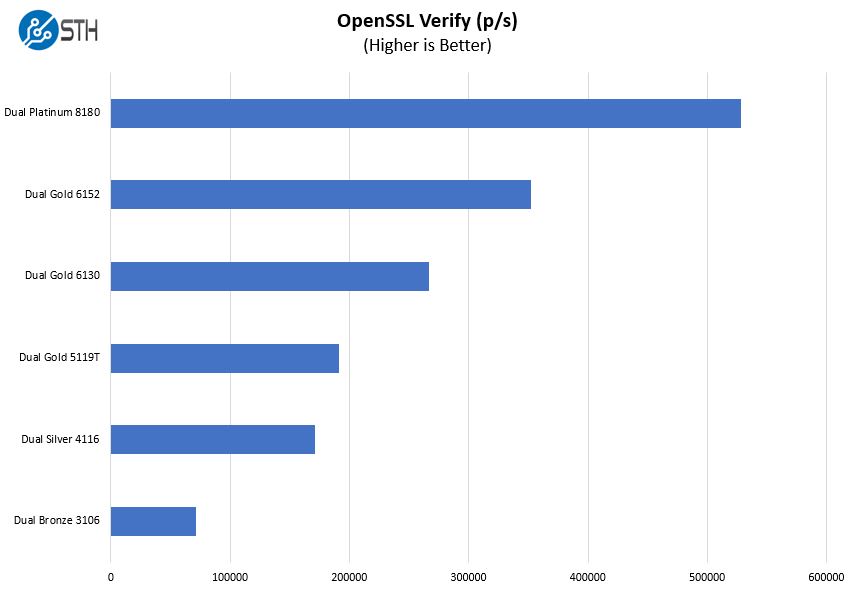
As one can see, this is another test where performance scales well with both cores and clock speeds.
Chess Benchmarking
Chess is an interesting use case since it has almost unlimited complexity. Over the years, we have received requests to bring back chess benchmarking. We have been profiling systems and are ready to start sharing results:
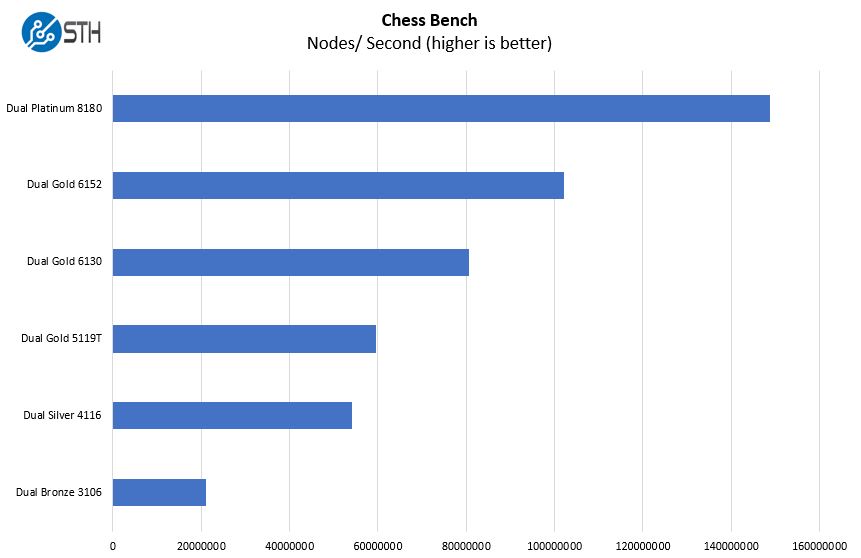
On the chess side, the Intel Xeon Gold 6100 range provides a solid range. We can see why the particular suggested configuration included dual Intel Xeon Gold 6130 CPUs.
GROMACS STH Small AVX2 Enabled
We have a small GROMACS molecule simulation we previewed in the first AMD EPYC 7601 Linux benchmarks piece. In Linux-Bench2 we are using a “small” test for single and dual socket capable machines. Our GROMACS test will use the AVX-512 and AVX2 extensions if available.
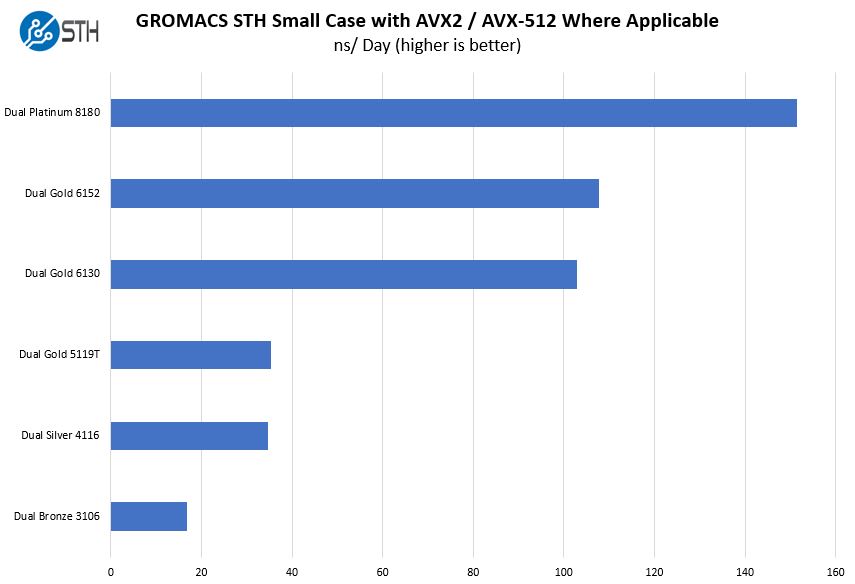
Here the Intel Xeon Gold 6130 maintained high clocks in multi-threaded AVX-512 workloads which kept performance up.
Next, we are going to take a look at the Inspur Systems NF5468M5 GPU performance before moving on to storage and networking performance.


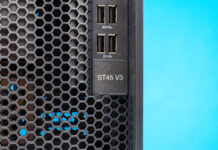
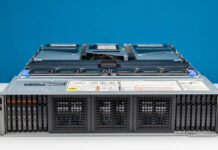
Ya’ll are doing some amazing reviews. Let us know when the server is translated on par with Dell.
How wonderful this product review is! So practical and justice!
Amazing. For us to consider Inspur in Europe English translation needs to be perfect since we have people from 11 different first languages in IT. Our corporate standard since we are international is English. Since English isn’t my first language I know why so early of that looks a little off. They need to hire you or someone to do that final read and editing and we would be able to consider them.
The system looks great. Do more of these reviews
Thanks for the review, would love to see a comparison with MI60 in a similar setup.
Great review! This looks like better hardware than the Supermicro GPU servers we use.
Can we see a review of the Asus ESC8000 as well? I have not found any other gpu compute designer that offers the choice in bios between single and dual root such as Asus does.
Hi Matthias – we have two ASUS platforms in the lab that are being reviewed, but not the ASUS ESC8000. I will ask.
How is the performance affected by CVE‑2019‑5665 through CVE‑2019‑5671and CVE‑2018‑6260?
P2P bandwidth testing result is incorrect, above result should be from NVLINK P100 GPU server not PCIE V100.